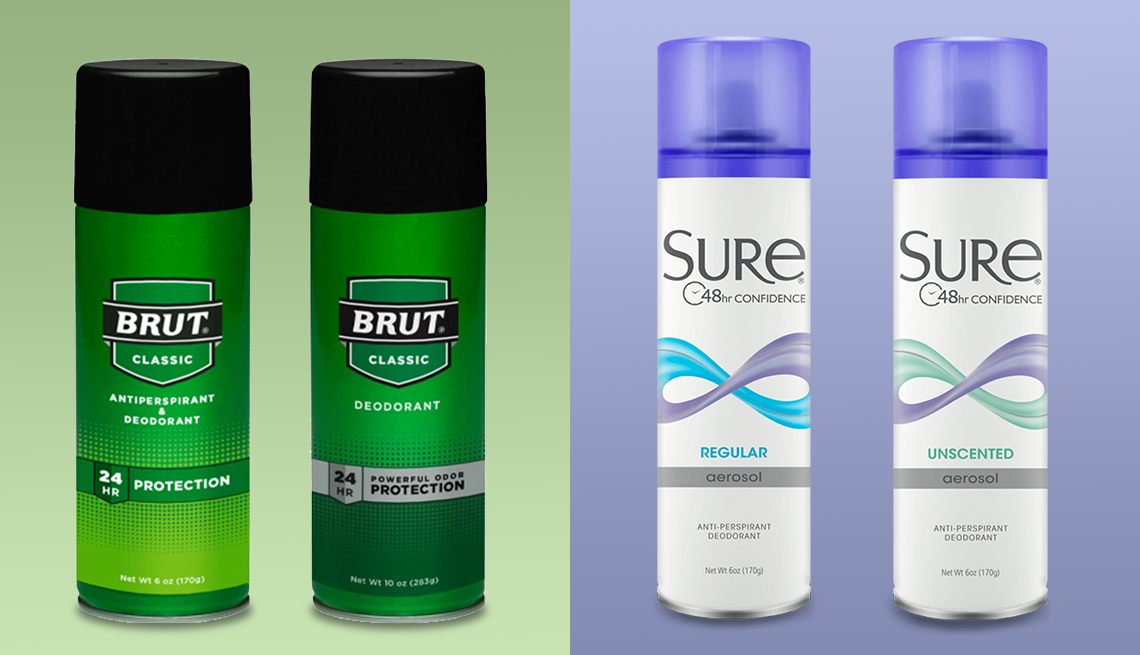AARP Hearing Center
Six Sure and Brut brand aerosol sprays are being voluntarily recalled after unexpected levels of a cancer-causing chemical, benzene, were detected. Although benzene is not an ingredient in the deodorants, testing showed the chemical, which can occur naturally, was present in the propellant that sprays the deodorant out of the can.
To date, there have been no reports of illness related to the voluntary recall announced on Feb. 16 by TCP HOT Acquisition LLC, which does business as HRB Brands. Prior to June 7, 2021, the Sure and Brut deodorant brands were owned and distributed by Helen of Troy Limited.
Consumers nationwide are advised to stop using the following spray deodorants if the expiration date is on or before August 2023:
- Brut Classic Antiperspirant Aerosol, 4 ounce
- Brut Classic Antiperspirant Aerosol, 6 ounce
- Brut Classic Deodorant Aerosol, 154 grams (sold only in Canada)
- Brut Classic Deodorant Aerosol, 10 ounce
- Sure Antiperspirant Aerosol, 6 ounce
- Sure Unscented Antiperspirant Aerosol, 6 ounce
Retailers are being notified of the recall, and consumers with questions can contact TCP HOT Acquisition LLC by calling 866-615-0976 Monday to Friday from 8:30 a.m. to 5 p.m. PT. They may also visit brutsurerecall2022.com to view images of the recalled products and request a refund.
Anyone experiencing problems that may be related to using these products should contact their physician or health care provider, the company advised.
Negative reactions or quality issues resulting from use of the sprays may also be reported to the Food and Drug Administration's MedWatch Adverse Event Reporting program in the following ways:
- Complete and submit a report online.
- Regular mail or fax: Download this form or call 800-332-1088 to request a reporting form, then complete and return to the address on the preaddressed form, or submit by fax to 800-332-0178.
In November, elevated levels of benzene were detected in some Old Spice and Secret brand aerosol deodorants.






































































